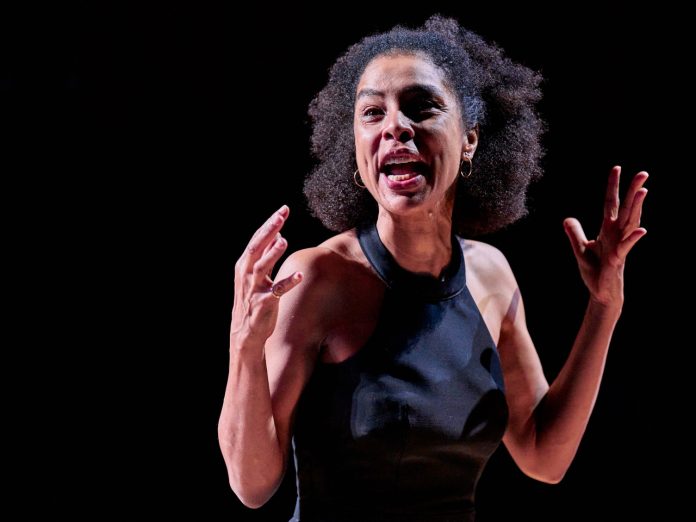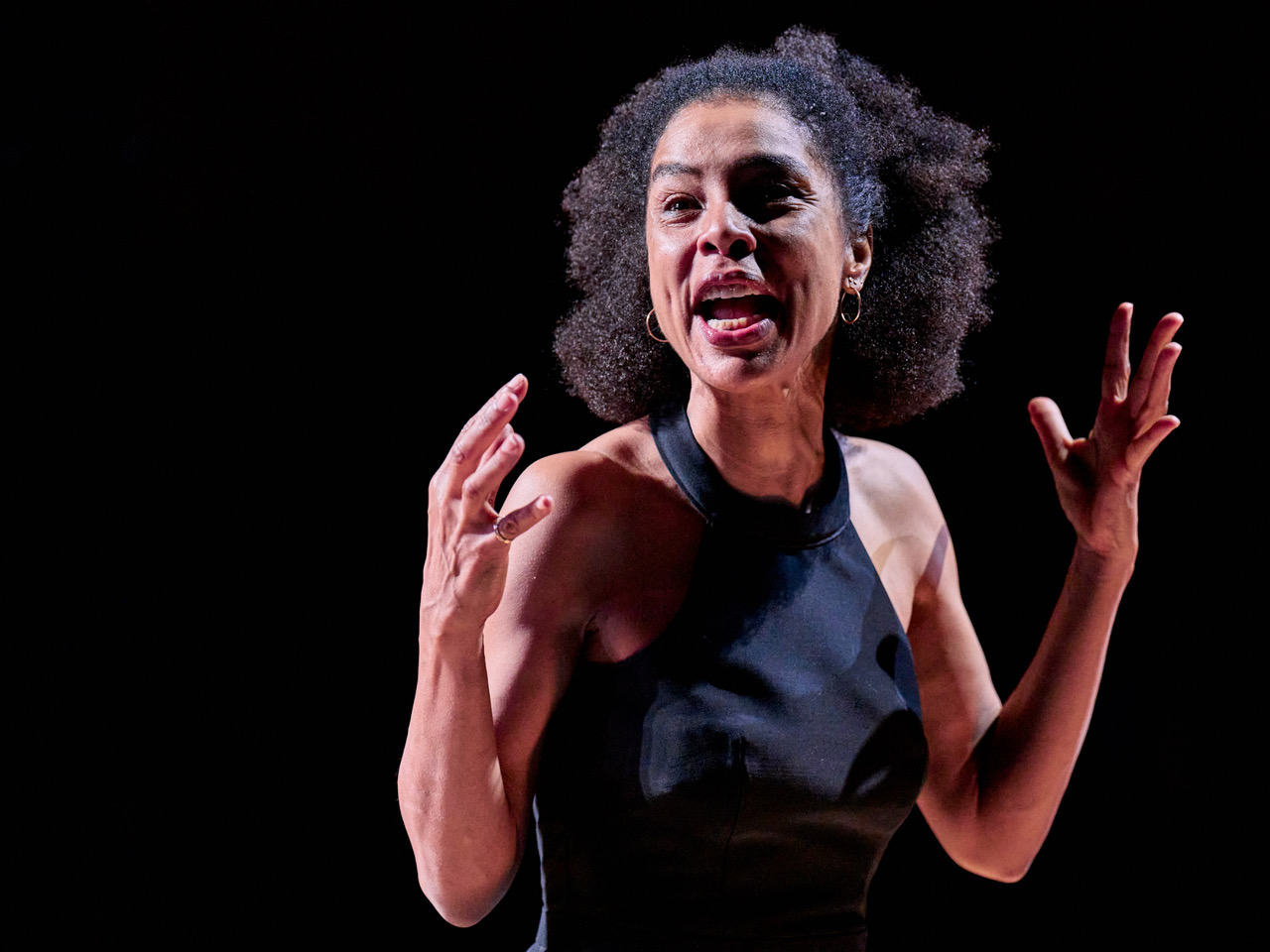
We are familiar with the tragic story of Medea, the embittered woman who murdered her two children to get back at her ex-husband, Jason after he abandons her for a young native princess. Now that’s a very over-the-top revenge. Mind you, her acts of love aren’t exactly palatable either as they involved stealing the Golden Fleece from her father and killing her brother to help Jason before eloping with him.
Consequently, she is disowned by her father and reviled by her own people. She has sacrificed the powerful status in her land for the love of a stranger; it is no ordinary kind of love and when a savage type of love is betrayed, it’ll take more than boxes of tissues and posting “I am living my best life without you” selfies alongside subliminal attacks against your ex on social media to move on. Only a greater sacrifice would do – to snuff out your husband’s future legacy by killing his children… according to Medea anyway.
“Sophie Okonedo is fierce as Medea and her interpretation of the double-crossed sorceress is harrowing to watch”.
“Hell hath no fury like a woman scorned” is what often comes to mind when we hear the name Medea, however, Robinson Jeffer’s adaptation is a modern debate on how women should react when wronged. It reminds me of a meme claiming that men love a powerful woman but as soon as they have wronged her, she becomes a witch. Even if it was her sorcery that brought him fame.
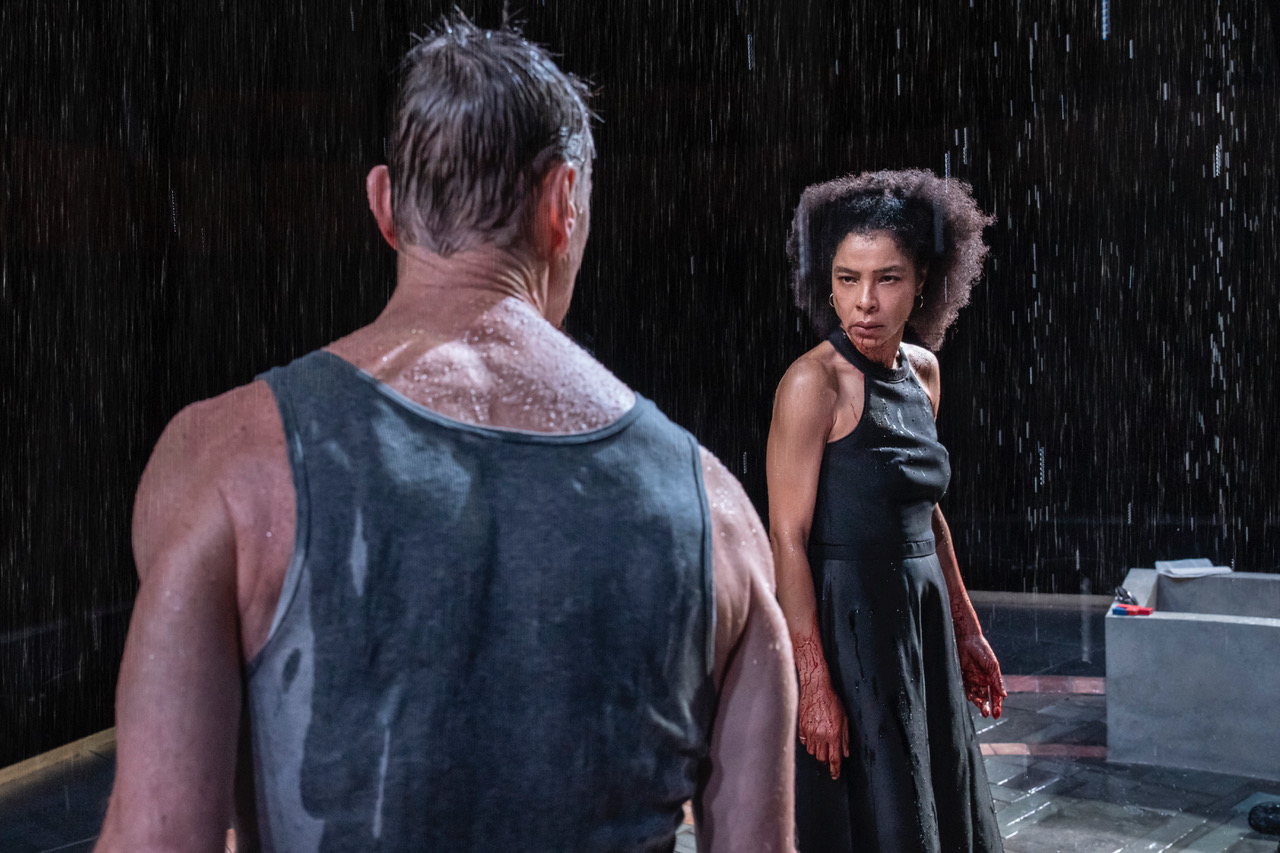
Sophie Okonedo is fierce as Medea and her interpretation of the double-crossed sorceress is harrowing to watch. We hear her wails off-stage; her voice bringing forth unbearable whiffs of despair and sorrow to fill the stage long before she emerges to address us. Placing the chorus in the audience makes it an intimate affair and integrates us with Medea’s destitution in a foreign land. We’re not just there to spectate but to also feel and reel with her.
She is fragile but formidable as she recalls some truths about their relationship with Jason with scorching eloquence. It is a cathartic scene and a balm for any woman who has ever been betrayed, mistreated and gaslighted; anyone with unrequited desires to avenge when justice fails and humiliates us. Okenedo is equally charming and persuasive with a hellbent Creon (father of Jason’s new wife) to defer her banishment until the following morning. What on earth can a wounded woman accomplish in half a day?
Performed in the round, the play has hung on to traditional Greek Amphitheatre staging, yet there are a few modern touches. For instance, traditionally all the roles would have been played by men, however, Dominic Cooke’s directorial decision to have one male actor playing the four male characters puts on view a clear subtle message.
The physically versatile Ben Daniels is on stage for almost the entire 90 minutes. He navigates his way around the perimeter of the stage in slow motion when there are no male characters in the scene taking place. His stylised walk is mesmerising to watch without being distracting, but rather symbolically highlights how women’s lives and existence have always been encircled by societal expectations set up by the patriarchy. Ben Daniels is a wiz in breaking into each role; from highly- authoritative Creon to super camp Aegeos and Messenger to a ruined Jason, Daniels’ performance was precise and undeniably superb throughout.
Another modern touch is noted in the set design which features a family dinner table at the start. A miniature model of a home made out of Lego bricks is placed on top of it. It gives the impression that the play would start off with a familiar domestic scene and then would work its way through to its tragic ending. However, no action or dialogue took place around the table; within 30 seconds of the house lights going down, the model house has fallen apart and the table is pushed off the stage by Jason who enters in a fit of rage.
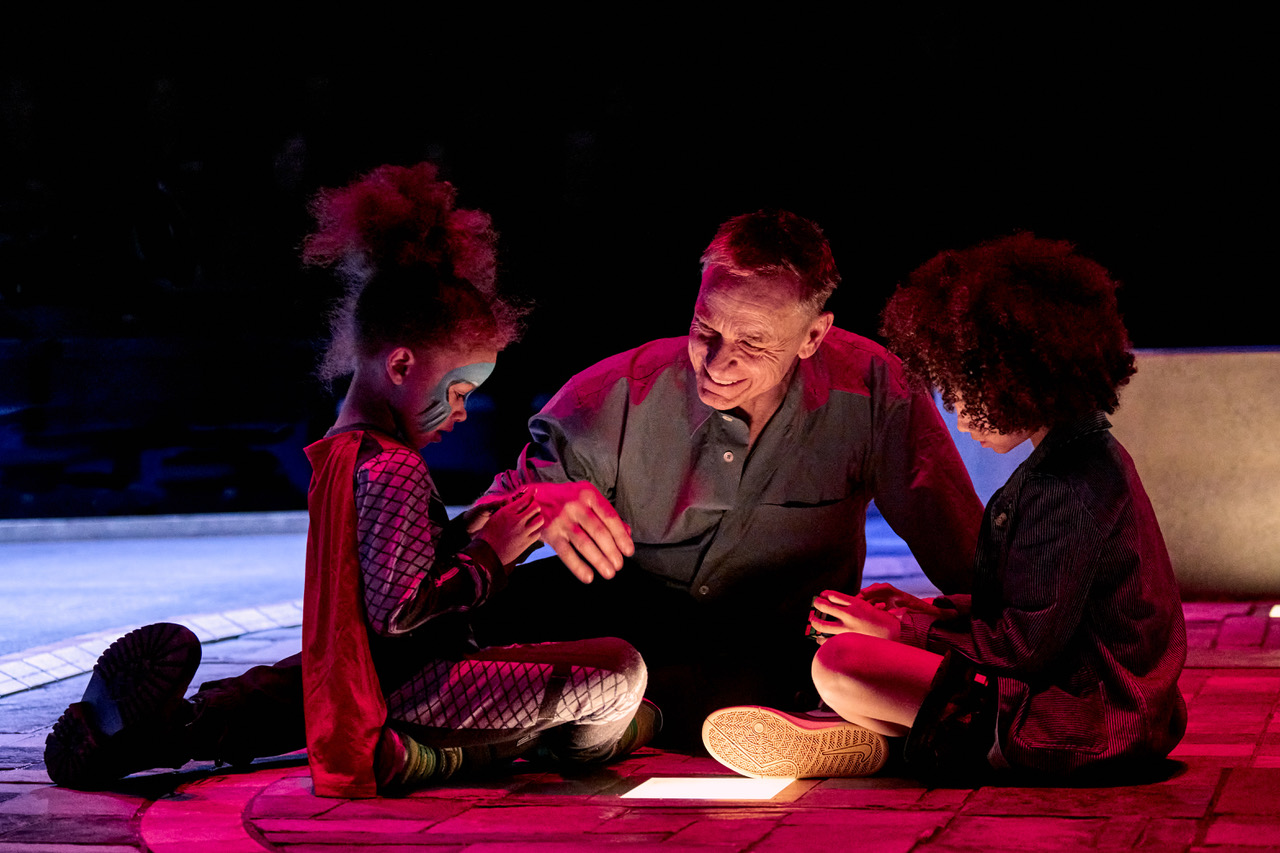
The dinner table is never seen again and I was perplexed (most likely on behalf of the stage crew) by its rather short-lived presence on stage but really liked how it set up the play’s premise in such little time. Also, it cleverly shows how a home, family and security can suddenly disintegrate with just one gesture.
Ben Daniels’ performance was precise and undeniably superb throughout.
The supporting cast did a fantastic job of sustaining the play’s pace. Marion Bailey’s portrayal of the Nurse is warm and motherly in her attempts to appease Medea. The two child actors’ interactions with the others on stage were believable even without having any dialogue. You might be relieved to know that the final act of infanticide happens off-stage, as always.
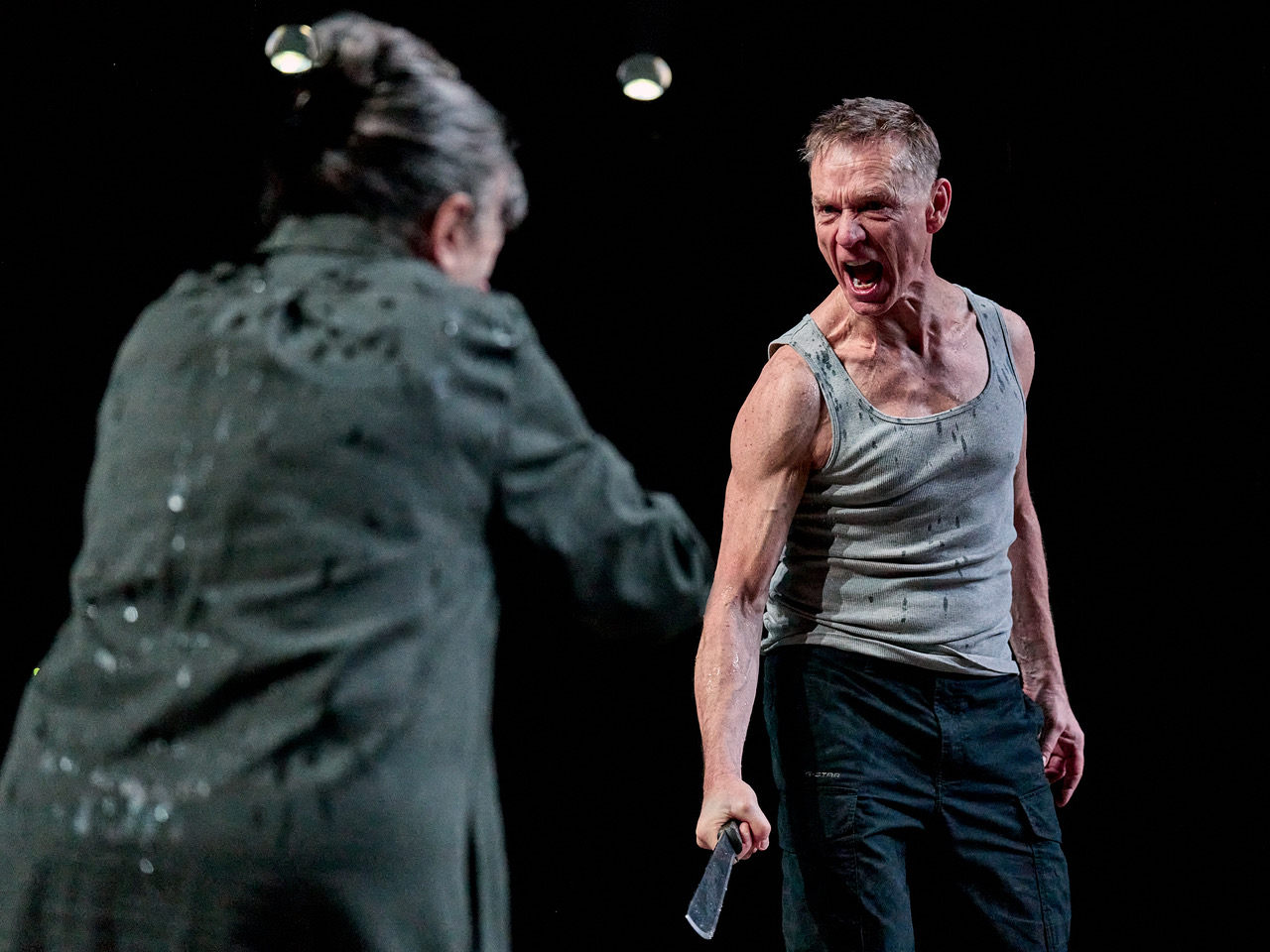
In fact, I must commend this production for its minimal physical violence but rather for finding creative ways and top-notch acting to depict it. In the final scene, it is expected (and would have been justifiable) for Jason to launch at Medea, but instead, Daniels deflates into a wreck as if he had been physically battered.
I found this production riveting and hard-hitting. No doubt it evokes a longing for women to be treated with more respect by the men they had elevated to high places. Although Medea’s final act is extreme, it really does stick two fingers up to all men who have ever screwed a woman over and then expect her to hold her peace. The message: there’s a thin line between justice and vengeance.























